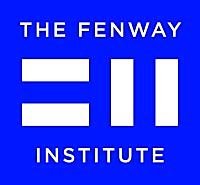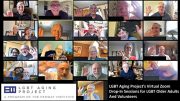 Leads to Formation of the Bisexual Research Collaborative On Health (BiRCH)
Leads to Formation of the Bisexual Research Collaborative On Health (BiRCH)
BOSTON, Mass.—Leading bisexual health researchers and community activists from across the country agreed to form the Bisexual Research Collaborative on Health (BiRCH) at a meeting hosted by The Fenway Institute in Boston on June 26. BiRCH will continue high-level discussions of bisexual health research, plan a national conference, and look for ways to raise public awareness of bi health issues.
The meeting was held to discuss the state of the research on bisexual health. Judith Bradford, PhD, Co-Chair of The Fenway Institute, and a Co-Chair of the meeting, noted the importance of such a gathering, “For all of the remarkable progress that has been made in the field of LGBT health, we still simply do not know enough about the full range of health needs and health concerns facing bisexual people. Today’s meeting was an important step toward addressing this significant gap.” [pullquote]“For all of the remarkable progress that has been made in the field of LGBT health, we still simply do not know enough about the full range of health needs and health concerns facing bisexual people. Today’s meeting was an important step toward addressing this significant gap.”[/pullquote]
Dr. Bradford pointed to the 2011 Institute of Medicine report on LGBT health, on which she was a committee member, which clearly specified the need for more bisexual health research as a priority area for the field.
The approximately 25 attendees included local, national and international researchers, as well as representatives from prominent bisexual organizations. Ellyn Ruthstrom, President of the Bisexual Resource Center, and a meeting Co-Chair, emphasized the importance of including community stakeholders in the discussion, “By having bisexual leaders from around the country at the table with this diverse group of esteemed researchers, we are keeping the voices of bi people at the center of this important work.”
Attendees discussed how bisexuality was defined in their own work and identified numerous areas in need of more research. These included the unique risk factors and stressors that influence bisexual health, the general health of bisexual men, how geographic and cultural contexts affect bisexual identities, and the pressing need for evidence-based interventions to address health inequities among bisexual groups. “Today’s conversations were remarkably important, and long past due,” said Dr. Wendy Bostwick, assistant professor at Northern Illinois University, meeting Co-Chair, and long-time researcher on the health of bisexual women. “We know that bisexual people make up half of those who identify as LGB and that health inequities are often most pronounced among bisexuals. Yet we are still lacking in funding, research, and interventions aimed at addressing these health disparities. With today’s meeting, we hope to change this landscape.”
The day concluded with a discussion of the necessary next steps in the field of bisexual health, as well as the decision to form the Bisexual Research Collaborative on Health.[pullquote] Attendees discussed how bisexuality was defined in their own work and identified numerous areas in need of more research. These included the unique risk factors and stressors that influence bisexual health, the general health of bisexual men, how geographic and cultural contexts affect bisexual identities, and the pressing need for evidence-based interventions to address health inequities among bisexual groups. [/pullquote]
“Our lives matter and the health inequities affecting our community need much more attention to change the dire statistics of physical and mental health issues affecting us,” said Ruthstrom.
For more than forty years, Fenway Health has been working to make life healthier for the people in our neighborhood, the LGBT community, people living with HIV/AIDS and the broader population. The Fenway Institute at Fenway Health is an interdisciplinary center for research, training, education and policy development focusing on national and international health issues. Fenway’s Sidney Borum Jr. Health Center cares for youth and young adults ages 12 to 29 who may not feel comfortable going anywhere else, including those who are LGBT or just figuring things out; homeless; struggling with substance use; or living with HIV/AIDS. In 2013, AIDS Action Committee of Massachusetts joined the Fenway Health family, allowing both organizations to improve delivery of care and services across the state and beyond.
[From a News Release]







